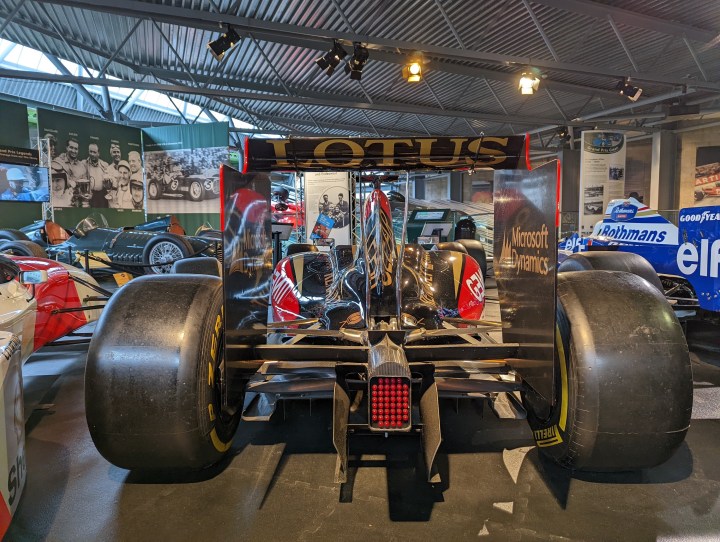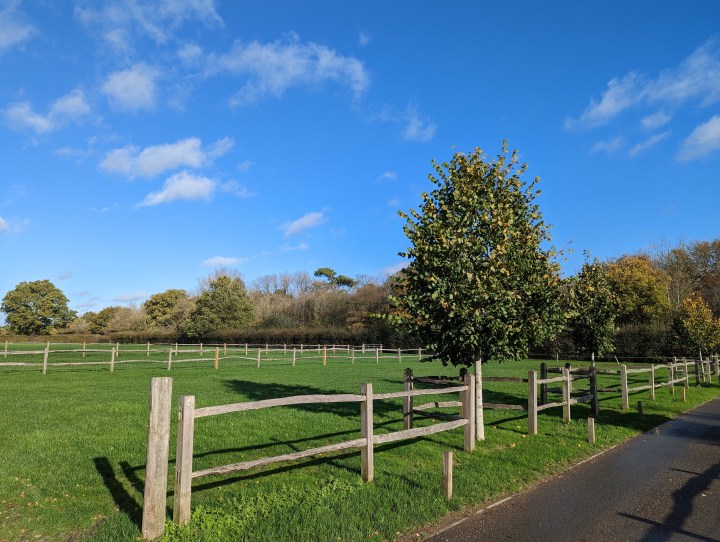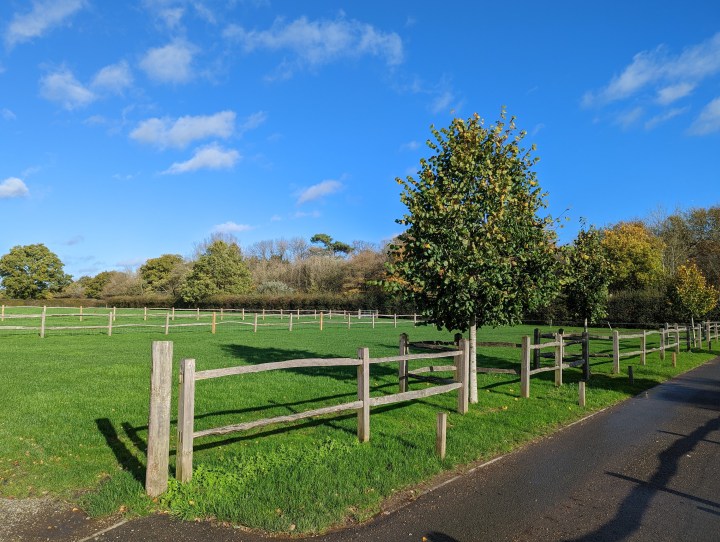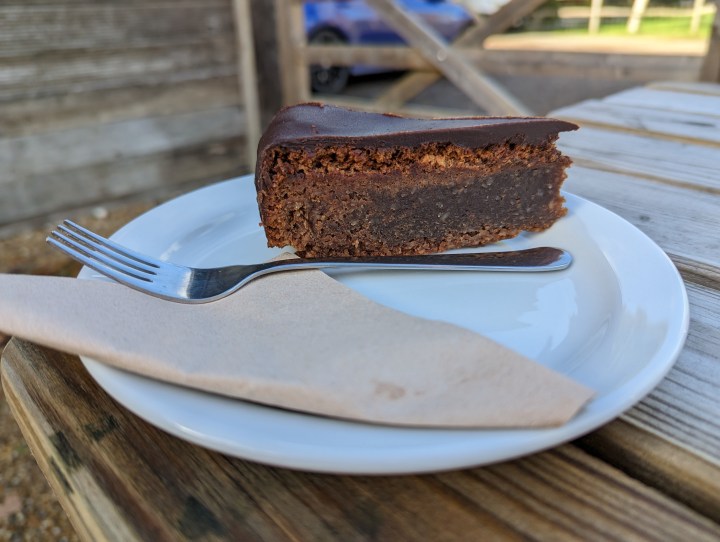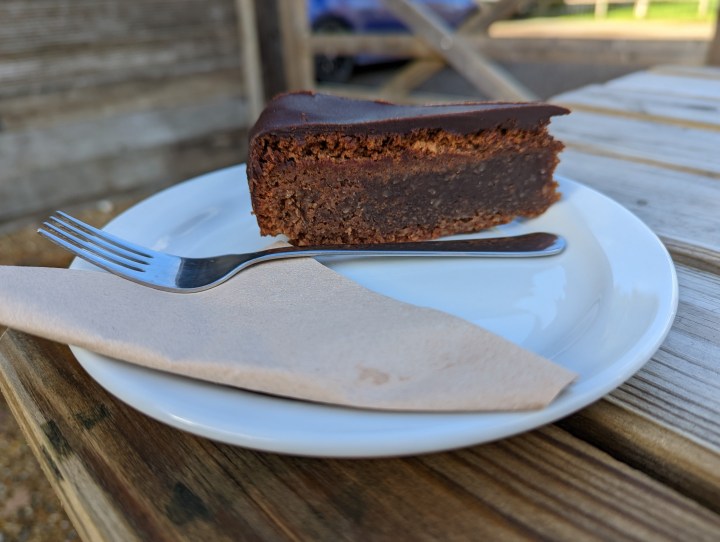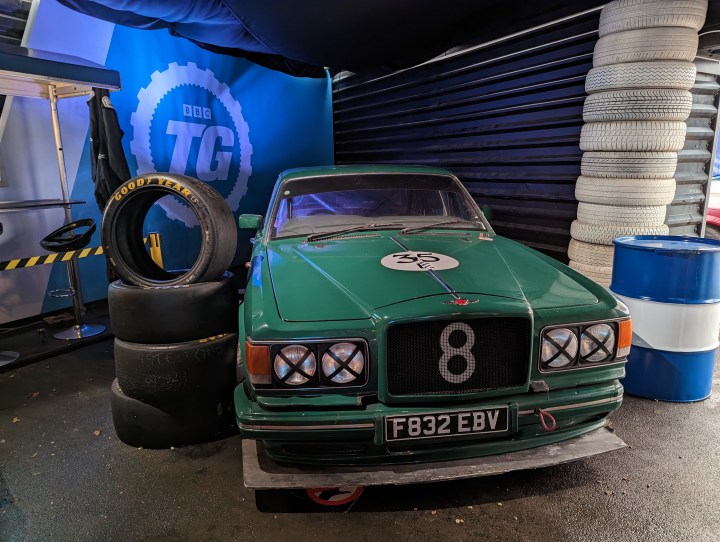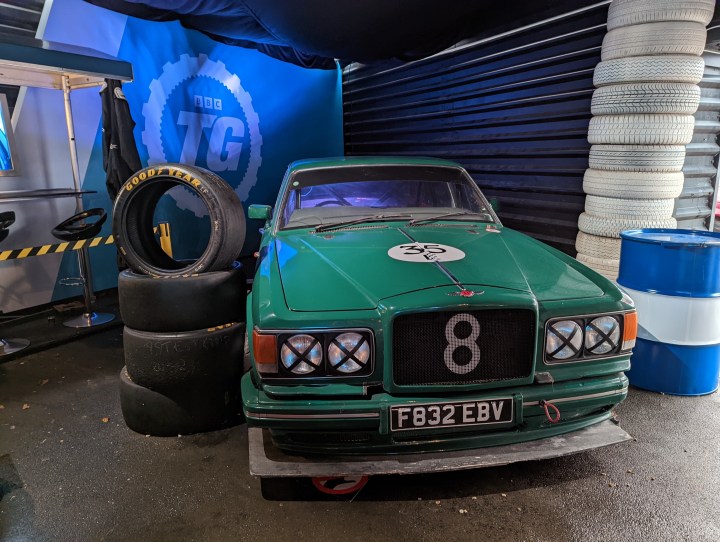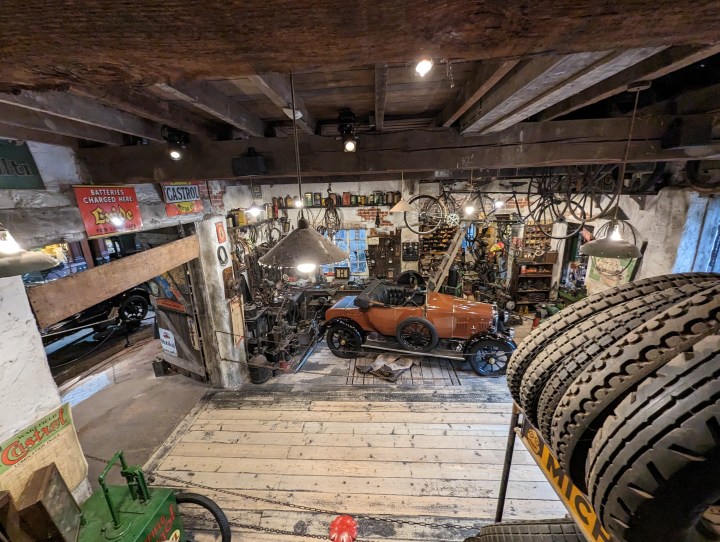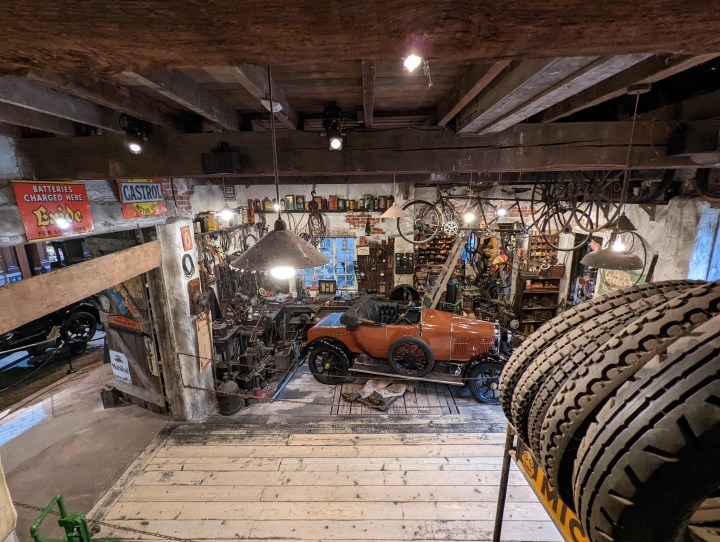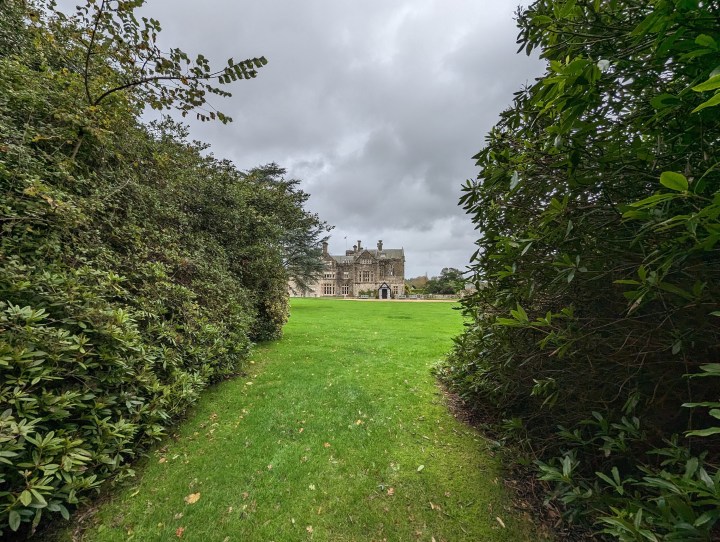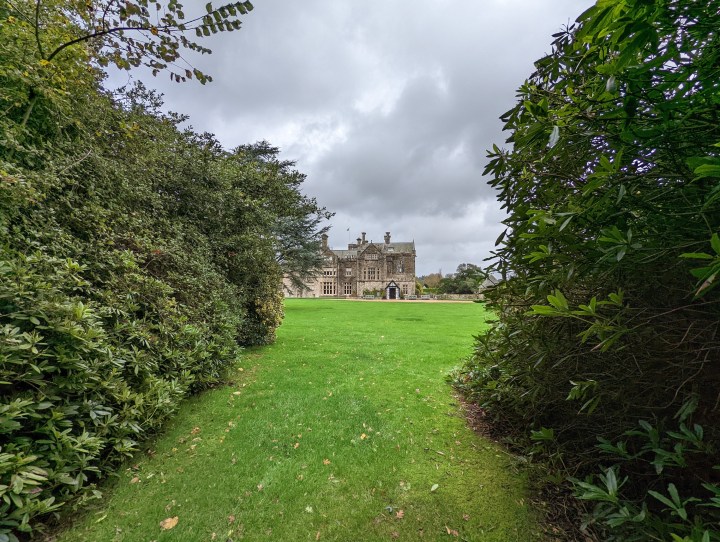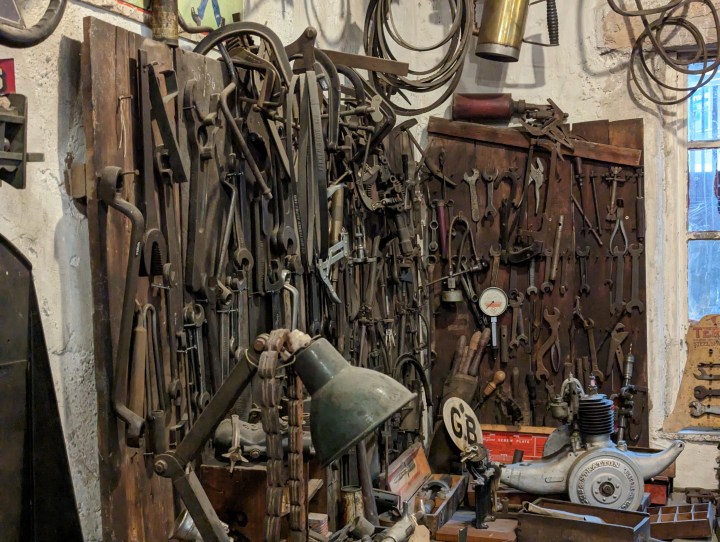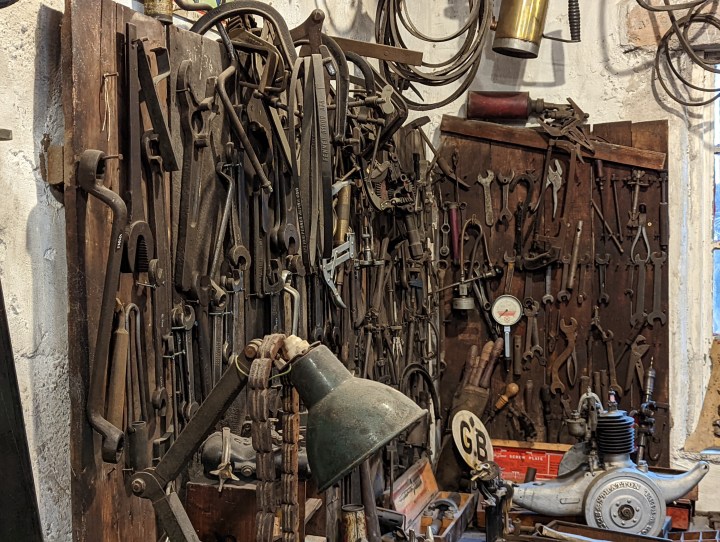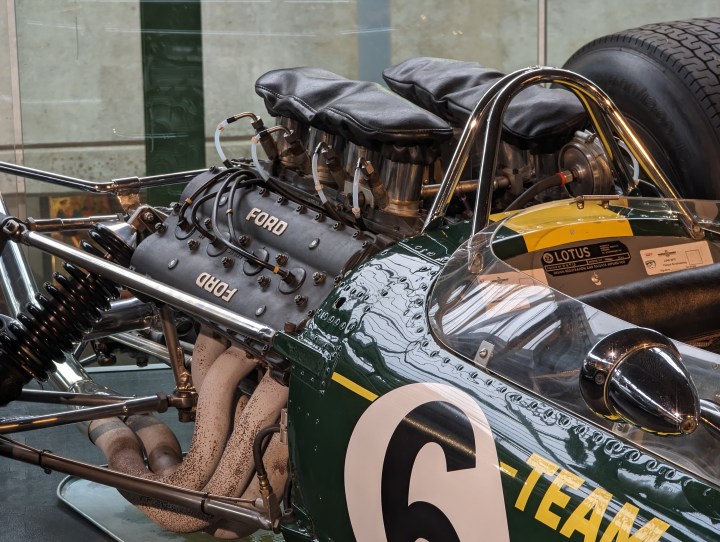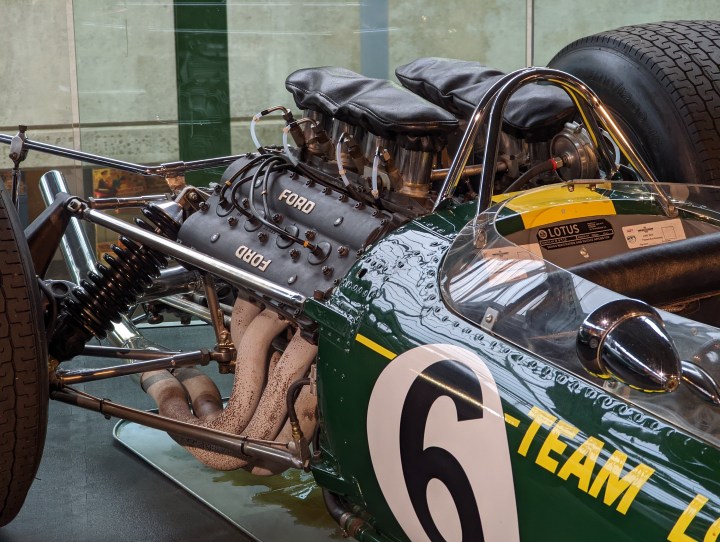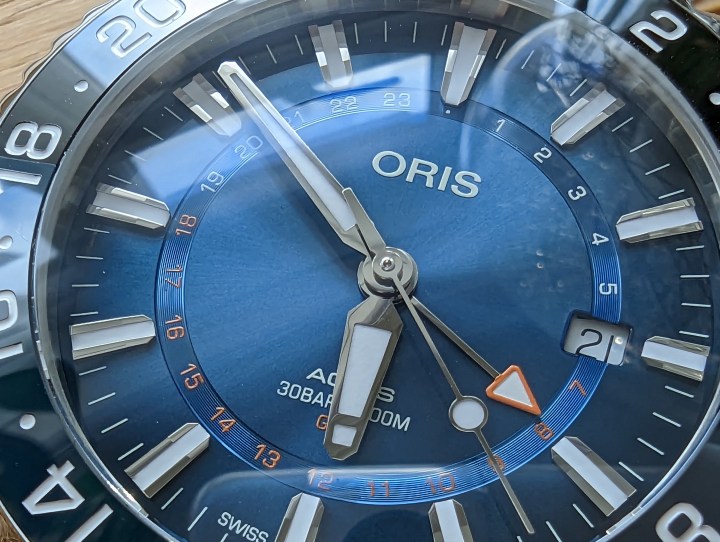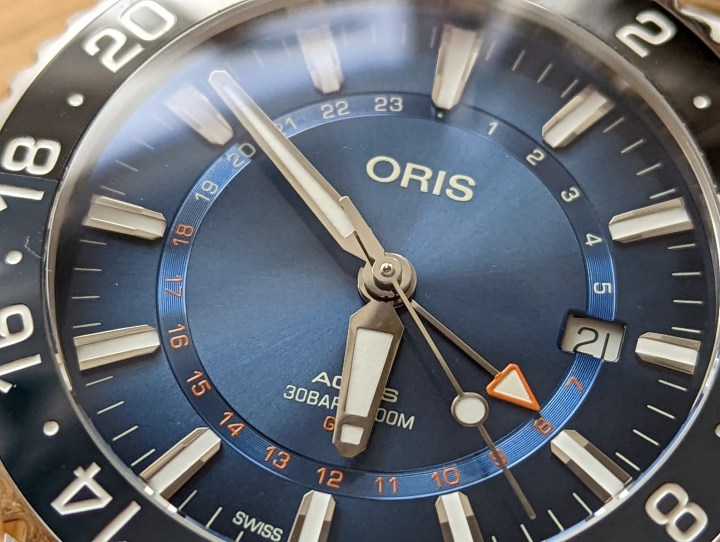The Google Pixel 7 Pro is a standout smartphone for 2022, flaunting a refined design, Google’s upgraded Tensor G2 chipset, Android 13 software, and a whole lot more.
But here’s a question that still needs to be answered: Has the Google Pixel 7 Pro’s camera taken a big step forward over the already excellent Google Pixel 6 Pro’s? We’ve tested them both out to see if you should think about upgrading if you have a Pixel 6 Pro, and to understand if Google has moved its photography game forward with the latest Pixel phone.
Pixel 7 Pro and Pixel 6 Pro camera specs
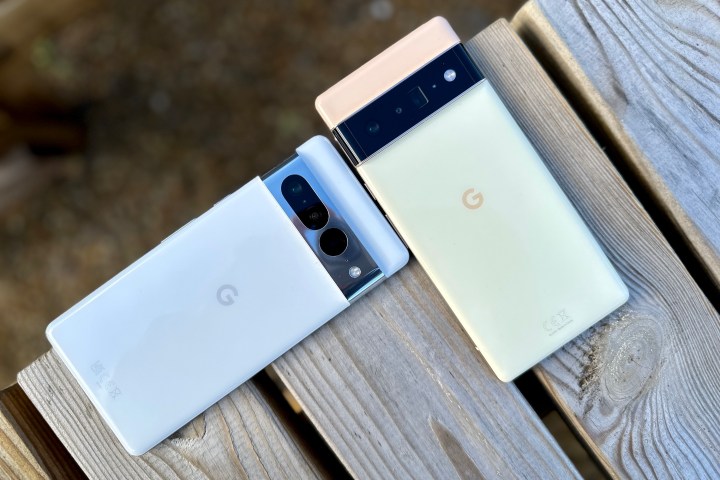
The Google Pixel 7 Pro has a 50-megapixel main camera with optical and electronic image stabilization (OIS and EIS), laser autofocus, and a whole host of special Google-specific software features. It comes with a 12MP wide-angle camera with a 125-degree field of view, plus a 48MP telephoto camera with 5x optical zoom and a 30x Super Res Zoom feature. On the front is a fixed-focus 10.8MP selfie camera.
It’s a great specification, and on paper, the Pixel 6 Pro isn’t all that different. It also has a 50MP main camera with OIS and laser autofocus, a 12MP wide-angle camera with a tighter 114-degree field of view, and a 48MP telephoto zoom with 4x optical zoom and Super Res zoom up to 20x. The selfie camera has 11.1MP and fixed focus. On the surface, the upgrades on the Pixel 7 Pro are small, but a lot of Google’s expertise is in its software, meaning it works hard to take full advantage of the hardware no matter what.
The photos below were all taken in auto mode and examined on a color-calibrated monitor. We have reduced the size of the image before uploading for friendly online viewing.
Pixel 7 Pro vs. Pixel 6 Pro main camera
With both phones using a 50MP main camera, differences between the photos will mostly come down to the way each one has been tuned, as well as alterations introduced by the Tensor G2 processor in the Pixel 7 Pro.
- 1. Pixel 7 Pro
- 2. Pixel 6 Pro
The first photo was taken indoors in good lighting, and shows where the Pixel 7 Pro differs from the Pixel 6 Pro. I didn’t tap to focus, but the Pixel 6 Pro correctly assumed the rear wing was the focal point, while the Pixel 7 Pro favored the rest of the image. See how the signs on the wall are sharper than in the Pixel 6 Pro photo, while the Lotus insignia is slightly less sharp. Colors are uniform across both.
- 1. Pixel 7 Pro
- 2. Pixel 6 Pro
In the second image, you can see more of a difference, with the Pixel 7 Pro toning down the green grass and deepening the blue of the sky. The level of detail is the same though, and while it’s really the Pixel 7 Pro that better captures the atmosphere of the day, some may prefer the look of the Pixel 6 Pro’s photo. The thing is, both photos look great.
- 1. Pixel 7 Pro
- 2. Pixel 6 Pro
For the third photo, I tapped on the slice of cake to focus and it’s the Pixel 7 Pro that returned the better image, with sharper focus and more accurate depth of field. This aside, the two photos are otherwise almost identical, treating colors and white balance in the same way.
- 1. Pixel 7 Pro
- 2. Pixel 6 Pro
Our final photo was taken in lowlight indoors, but with daylight coming in from the side. The two photos have minor differences between them when it comes to the color of the car. The Pixel 6 Pro exposes the scene slightly differently than the 7 Pro, and when you look very closely, there’s a tiny bit more detail in some areas of the 7 Pro’s photo as well. But like the other images, one photo is not categorically better than the other. It makes the main camera section a draw.
Winner: Draw
Pixel 7 Pro vs. Pixel 6 Pro wide-angle camera
The wide-angle camera on the Pixel 7 Pro has a wider 125-degree field of view compared to the Pixel 6 Pro’s 114-degree field of view, so you will notice the 7 Pro’s photos are more expansive.
- 1. Pixel 7 Pro
- 2. Pixel 6 Pro
You can see the difference it makes in our first photo, where the side of the doorway on the left includes the old Castrol sign on the wall in the Pixel 7 Pro photo; it’s missing from the Pixel 6 Pro’s photo. I prefer a wide-angle camera to have an actual wide angle, and the Pixel 7 Pro delivers that far more than the Pixel 6 Pro. However, angle aside, the two photos are very similar.
- 1. Pixel 7 Pro
- 2. Pixel 6 Pro
On to the second photo and, again, apart from the Pixel 7 Pro’s wider field of view, the two photos are practically identical. The HDR effect is noticeable in the clouds, the grass is the same shade of green, and there’s the same amount of detail and texture in the building. All the wide-angle photos taken with the two Pixel phones had the same characteristics as these two examples, but we’re going to give the Pixel 7 Pro the win here as it has a wider field of view.
Winner: Google Pixel 7 Pro
Pixel 7 Pro vs. Pixel 6 Pro zoom camera
The Pixel 7 Pro provides a shortcut to a 2x and a 5x zoom in its camera app, while the Pixel 6 Pro provides a 2x and 4x shortcut. You can see examples of both here, and the results are interesting. The first photo was shot in decent indoor lighting at 2x zoom, yet the older phone handled it far better.
- 1. Pixel 7 Pro
- 2. Pixel 6 Pro
The texture of the lamp in the foreground in the Pixel 6 Pro’s photo is obvious, but it’s like someone quickly wiped it down before I took the photo with the Pixel 7 Pro (they didn’t), while the text on the drive belts hanging up is sharp and clear in the Pixel 6 Pro’s phot, yet dull and blurred in the Pixel 7’s. The Pixel 6 Pro’s photo is superior.
- 1. Pixel 7 Pro
- 2. Pixel 6 Pro
Our second photo shows the difference between the Pixel 7 Pro’s 5x zoom and the Pixel 6 Pro’s 4x zoom, and like the wide-angle camera, it’s really the only aspect that lets you tell the two apart. There are masses of detail, the colors are sharp and accurate, and you’d never know these were taken using such a deep zoom level. Both are great photos, but the Pixel 6 Pro’s 2x does tend to show more detail and texture, especially in challenging light, so it takes the win here.
Winner: Google Pixel 6 Pro
Pixel 7 Pro vs. Pixel 6 Pro night mode
It has already been difficult to tell the two cameras apart, and it’s even more so when shooting in low light with the night mode active. There are three examples below, but they treat the scenes so similarly that it’s difficult to pick a winner. While there are some subtle improvements in white balance in the Pixel 7 Pro’s photos, the Pixel 6 Pro often seems to show more detail.
- 1. Pixel 7 Pro
- 2. Pixel 6 Pro
However, look closely at the Pixel 7 Pro’s photo of the monument, and it seems to show stars in the sky, which are entirely absent from the Pixel 6 Pro’s image. This isn’t quite so obvious in other photos and may be entirely dependent on lighting conditions. Still, it’s some evidence that the Pixel 7 Pro’s night mode has been further refined, but the changes won’t always be so obvious.
- 1. Pixel 7 Pro
- 2. Pixel 6 Pro
Does that make the Pixel 7 Pro the winner? While there is evidence of improved performance in a few of the photos I took at night and in low light, most of the time, the two cameras performed in basically the same way. If you’ve got a Pixel 6 Pro, then you won’t notice a huge change in regular lowlight photos if you upgrade unless you’re shooting in very dark conditions.
- 1. Pixel 7 Pro
- 2. Pixel 6 Pro
The third photo shows where you may see some improvements with the Pixel 7 Pro. The photo of the Lego car was taken with barely any ambient light, and while both photos are blurry, the Pixel 7 Pro does manage to brighten, focus, and eliminate the blur better than the Pixel 6 Pro. When the Pixel 6 Pro’s Night mode is so good, even the tiniest of improvements takes masses of work. The Pixel 7 Pro gets the win, but don’t expect to see the differences very often if you upgrade.
Winner: Google Pixel 7 Pro
Pixel 7 Pro vs. Pixel 6 Pro portrait mode
Continuing the theme of the Pixel 7 Pro and Pixel 6 Pro taking pretty much the same photo, we come to the portrait mode test, where we look at the edge recognition, background blur, and object recognition as key points in the camera’s performance. In an entirely unsurprising turn of events, both cameras do such a great job that it’s hard to tell them apart.
- 1. Pixel 7 Pro
- 2. Pixel 6 Pro
Our photo here shows what we mean. Both cameras isolate the hood emblem very well, and the color and detail elsewhere are mostly consistent too. Perhaps the Pixel 6 Pro does a slightly better job with object recognition, but it’s barely noticeable. The background blur in both is creamy and attractive, with both doing a great job of easing into the blur along the car’s hood.
Winner: Draw
Pixel 7 Pro vs. Pixel 6 Pro macro mode
It only needs a single photo to see where Google has made dramatic improvements with its macro mode. This was shot using 2x zoom, and only the Pixel 7 Pro shows a “macro” icon when it focuses on a close-up object. The Pixel 6 Pro also takes longer to switch to its macro mode, which is not labeled in the same way.
- 1. Pixel 7 Pro
- 2. Pixel 6 Pro
The Pixel 7 Pro’s photo is packed with detail and texture, avoiding any of the pixelation that’s obvious in the Pixel 6 Pro’s photo — plus, it brings out the wonderful blue sunburst effect on the watch’s dial far more than the 6 Pro. The edge enhancement is also clear in the Pixel 6 Pro’s photo, while the Pixel 7 Pro avoids it almost entirely.
Winner: Google Pixel 7 Pro
Pixel 7 Pro vs. Pixel 6 Pro selfie camera
Taking selfies in portrait mode shows edge recognition, colors, and overall performance is, you’ve guessed it, almost identical when shooting with the Pixel 7 Pro and Pixel 6 Pro. Google’s work on making skin tones look more natural is obvious, but I’m not entirely sure it’s successful. The Pixel 7 Pro makes my skin redder, while the Pixel 6 Pro seems to be better at making me look more natural.
- 1. Pixel 7 Pro
- 2. Pixel 6 Pro
However, this may be personal preference, but because I would edit the Pixel 7 Pro’s selfies more heavily than the Pixel 6 Pro’s, it’s a win here for the older phone. This isn’t an unsurprising result, as the Pixel 7’s selfie camera also suffered when it was put up against the iPhone 14. The new selfie camera certainly isn’t bad, but I have preferred the Pixel 6 Pro’s selfies.
Winner: Google Pixel 6 Pro
Almost too close to call
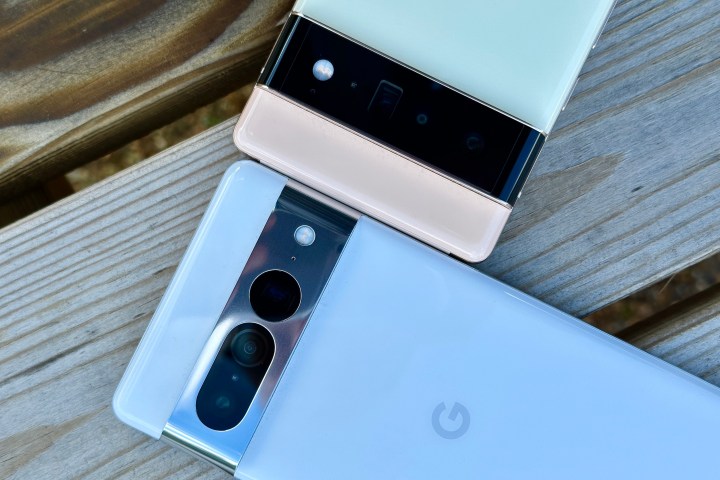
The Pixel 7 Pro has won three categories, the Pixel 6 Pro has won two, and there are two draws. It makes the Pixel 7 Pro the winner, but looking at the results overall, it’s a very close thing. The Pixel 7 Pro’s camera is a small update over the Pixel 6 Pro’s camera, and if you already have that phone in your pocket, you’re unlikely to notice much of a difference if you decide to upgrade.
Does this make the Pixel 7 Pro’s camera a disappointment or bad? Absolutely not. It’s one of the very best cameras we’ve used recently, but the fact there are only small improvements over the Pixel 6 Pro shows how Google really got the performance of its predecessor’s camera right. It’s still superb a year into its life, and we expect the same thing to happen with the Pixel 7 Pro. If you own the Pixel 6 Pro, we’d say stick with it for this year, but if you’re looking at the Pixel 7 Pro and value the camera, don’t hesitate to get one.

